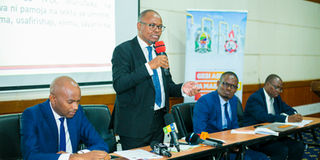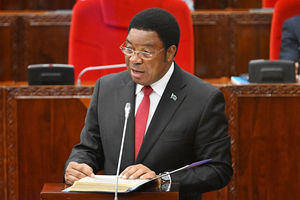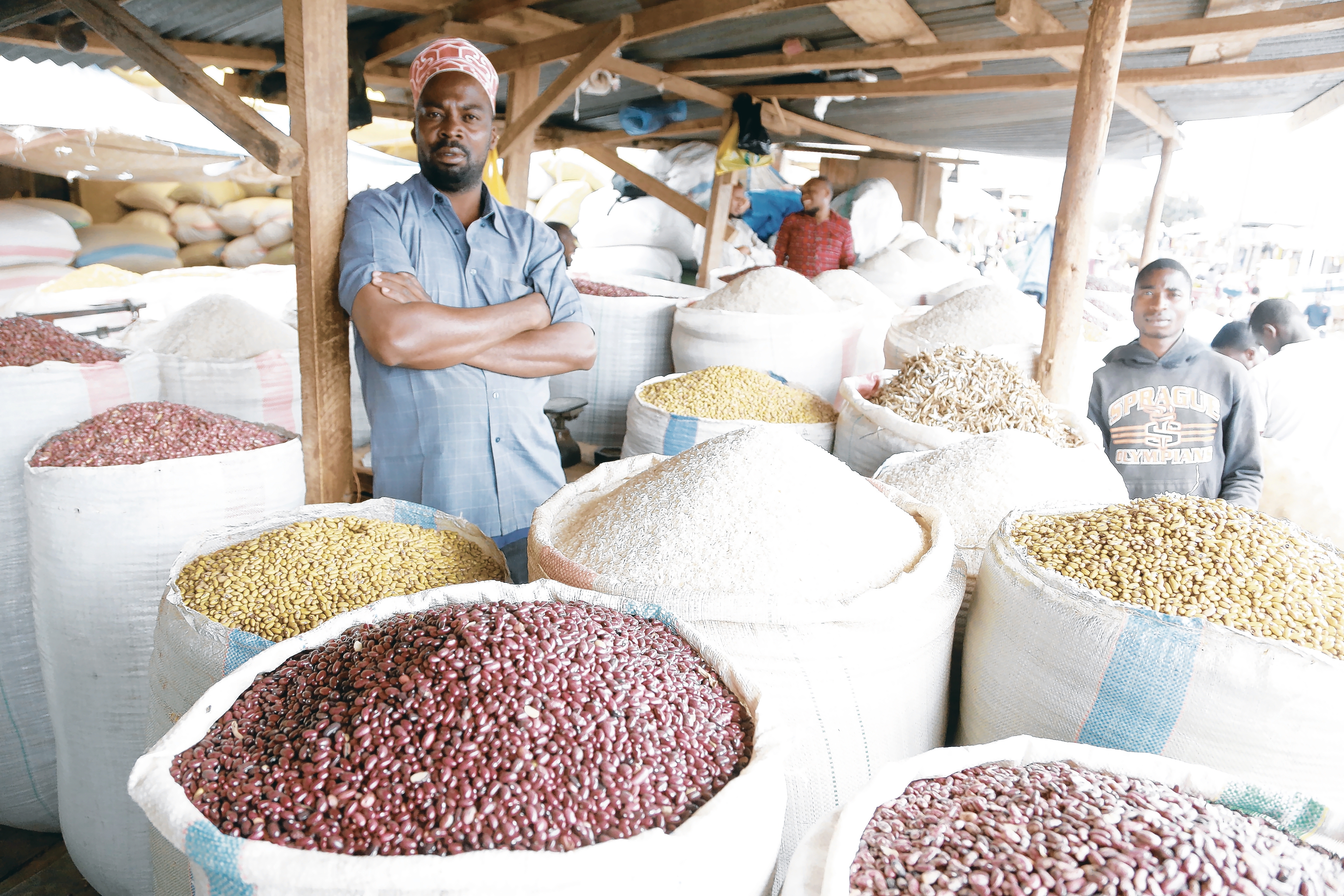TPDC seeks new partners as it attains financial autonomy

TPDC director general Mussa Mohamed Makame speaks to Editors and Journalists in Dar es Salaam on July 20, 2023. PHOTO | COURTESY
What you need to know:
- With a balance sheet of Sh4.21 trillion, the state-owned oil company got profits of Sh97.78 billion in the 2021/22 fiscal year even as it financed its activities by only 99 percent
Dar es Salaam. The Tanzania Petroleum Development Corporation (TPDC) is set to finalise plans to wean itself off government subventions within this financial year.
Addressing journalists here yesterday, TPDC director general Mussa Makame said the state-owned oil organization has hitherto been financing its activities at 99 percent.
But now TPDC can stand on its own, an important milestone on its path towards more commercially-oriented activities, Mr Makame noted. “For us to be able to operate commercially, we expect to strengthen our financial muscles so that we can stop depending on the government’s subsidies,” said Mr Makame.
TPDC finance and administration director Francis Mwakapalila said during the 2021/22 financial year, TPDC’s balance sheet stood at an eye-watering Sh4.21 trillion, higher compared to Sh3.17 trillion in the 2018/19 financial year.
On the other hand, he said, the entity’s profitability climbed to Sh97.78 billion in the 2021/22 fiscal from Sh22.92 billion registered during the preceding year.
“We are now preparing accounts for the 2022/23 financial year. We expect to register a profit of between Sh80 and Sh100 billion for the period under review,” said Mr Mwakapalila.
To keep shining in the next five years, TPDC officials will now focus their attention on seeking strategic private sector partners.
“We need strategic partners with whom we will collaborate in expediting the exploration and development of oil and gas,” he asserted. This, he explained, will apply mostly to the blocks that are directly owned by TPDC.
Further, he added, they would keep on using the profit accrued from the TPDC business to reinvest in various projects.
“We have the vision to become a globally competitive company and a key player in the oil and gas industry both regionally and internationally,” Mr Makame told the media. He went on to add: “At TPDC, team success precedes individual success, an ideal we hold dear in our hearts.
We trust each other to deliver on our obligations and constantly strive to achieve quality outcomes.” TPDC director of planning and investment Derick Mushi said the oil and gas sector had high risks and required huge investments.
“We expect to attract more partners to work with. We are currently exploring only 30 percent of oil and gas. We need to be between 60 and 100 percent,” said Mr Mushi.
TPDC director of exploration, development, and production Kenneth Mutaonga said TPDC would cooperate with new partners the same way it has done in projects like Liquefied Natural Gas (LNG) and the East African Crude Oil Pipeline (Eacop).
In the LNG, TPDC is working closely with Equinor and Shell, who are the joint operators, as well as ExxonMobil, MedcoEnergi, and Pavilion Energy.
Mr Mutaonga said talks between the National Negotiation Team and investors have been concluded. “The negotiation team is in the final stage of preparing the contracts so that they can be signed, to pave the way for the kickoff of the project implementation,” he noted. Director of Petroleum Business William Chiume said as far as natural gas is concerned, there are plans to extend their footprints to neighbouring countries like Kenya, Uganda, and Zambia.
TPDC was established in 1969 to, exclusively, conduct all the commercial petroleum activities in the downstream segment.
This function was curtailed during the liberalization of the economy in the 1990s with the entry of private sector operators.
However, the Petroleum Act, of 2015 has re-instated the TPDC’s commercial mandate in both downstream and upstream segments.




